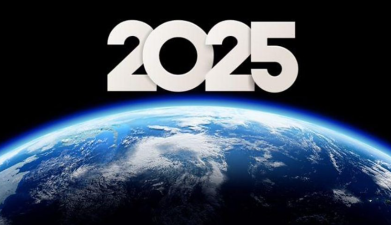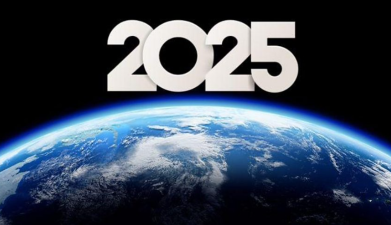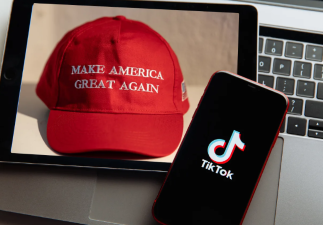As we head into 2025, the global business environment continues to evolve at an unprecedented pace. From technological advancements to shifts in consumer preferences, companies must stay ahead of emerging trends to stay competitive.
As we head into 2025, the global business environment continues to evolve at an unprecedented pace. From technological advancements to shifts in consumer preferences, companies must stay ahead of emerging trends to stay competitive.

- AI Applications
In 2025, companies will leverage AI for everything from predictive analytics to customer service chatbots. AI and automation are no longer optional tools, but essential components of modern business strategy.
77% of companies are using or exploring AI in their business
35% of companies worldwide use AI in their business
AI market grows to over $184 billion in 2024, up nearly $50 billion from 2023
50% of businesses say AI helps them provide 24/7 customer support
SMEs and large enterprises no longer view AI as an add-on feature, but as a strategic advantage. AI could be the focal point for businesses to change their value proposition and completely reinvent the customer experience.
- Healthcare sector meets aging challenges
In 2025, the healthcare sector will face the daunting challenge of an aging global population. By then, people aged 65 and over will account for 12% of the world's total population. Although medical needs will continue to increase, global health spending is expected to fall to 10% of GDP from 11% during the COVID-19 pandemic. The Economist Intelligence Unit (EIU) predicts that global health spending will reach $11 trillion, half of which will come from the United States. In terms of innovation, the World Health Organization (WHO) will focus on the impact of climate change on health. The pharmaceutical industry will see major breakthroughs, including the launch of affordable weight loss drugs, monkeypox vaccines, avian flu vaccines, COVID-19 vaccines, and cancer mRNA vaccines. Global drug sales are expected to reach $1.7 trillion.
- Digital transformation
This year, digital transformation will take another leap forward, and companies are adopting digital transformation tools to transform raw, unstructured data into clear, actionable solutions, making leaders' decisions easier and more effective. Companies are beginning to realize that simply having data is not enough. It needs to transform data into actionable solutions for teams, creating smooth feedback loops that keep everyone aligned and executing collaboratively. Cloud computing, e-commerce, blockchain, and digital currencies are being integrated into daily business operations to improve efficiency and transparency.

- Global energy consumption hits a new high
In 2025, global energy consumption is expected to grow by 2% to a record high of 14.5 billion tons of oil equivalent, of which fossil fuels will still dominate, accounting for up to 80%. This will lead to 1.7 times more carbon emissions than in 1990. Coal will continue to be the main fuel in Asia, especially in India and Russia. In the oil market, OPEC+ will maintain Brent crude oil prices between $75-77 per barrel by adjusting production.
The share of renewable energy in global supply is expected to increase to 14%, and wind and solar power will account for one-sixth of the world's electricity. Countries are actively expanding clean energy investments, such as solar power plants in India, small power grids in Zambia, and geothermal power plants in Texas. Thailand plans to increase its share of renewable energy to 20%. Nuclear energy will regain its dominance in Asia, especially in China, which will achieve its goal of producing 200,000 tons of green hydrogen annually.
- Consumer hyper-personalization
There is a growing focus on providing personalized experiences through data analysis and artificial intelligence. Companies are customizing products, services and marketing based on personal preferences to increase consumer loyalty. Advanced analytics and machine learning allow companies to deliver hyper-personalized customer experiences. From tailored marketing campaigns to customized product recommendations, businesses that effectively leverage data can build stronger customer relationships and increase loyalty.
Businesses are investing in digital collaboration tools and rethinking office spaces to accommodate flexible work arrangements. The pandemic has accelerated the shift to flexible and remote work models. By 2025, most businesses will adopt a hybrid work model, with remote options becoming standard for employees. Advances in digital collaboration tools, AI-driven project management, and VR-driven meetings will increase productivity and engagement among distributed teams. The emphasis on work-life balance will lead to more flexible working hours and locations, helping companies attract talent from a global talent pool. Remote and hybrid work models remain dominant as companies focus on flexibility, employee well-being, and cost-cutting. The use of digital collaboration tools is expanding, enabling employees to work effectively from anywhere.
The business world of 2025 is dynamic and multifaceted, driven by rapid technological advancements and changing societal values. Businesses that embrace these emerging trends and adjust their strategies accordingly will be positioned for long-term success. Staying abreast of trends and being agile in an environment of constant change is not only an advantage, but a necessity.














